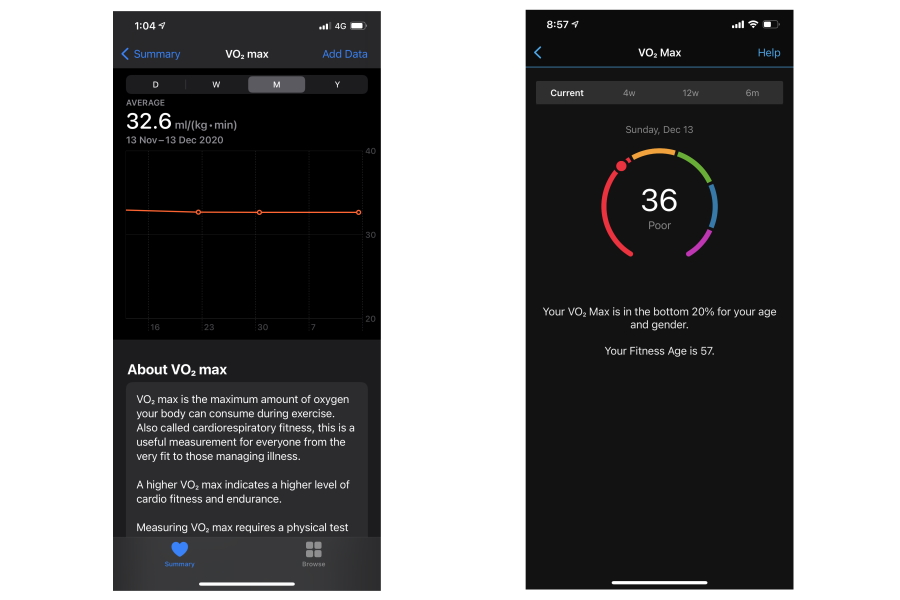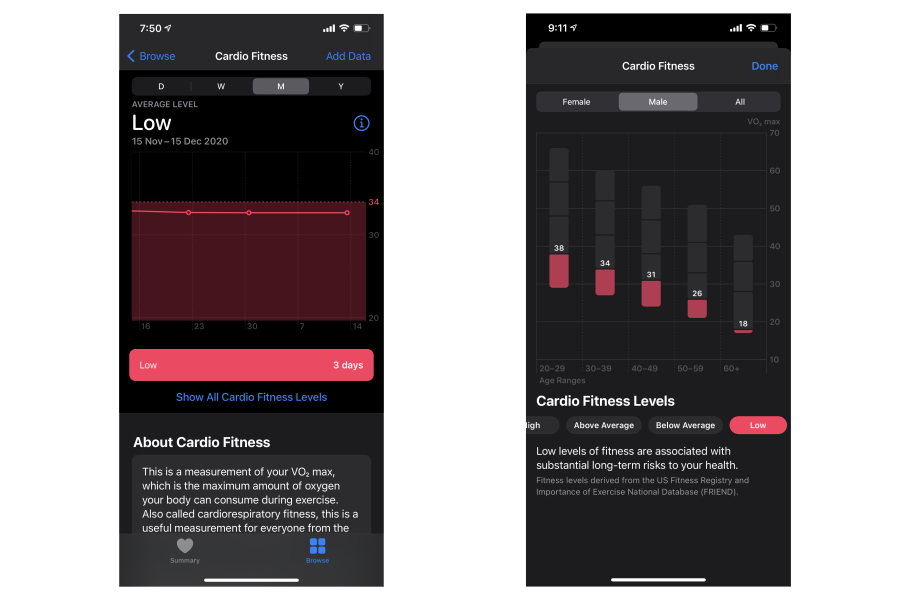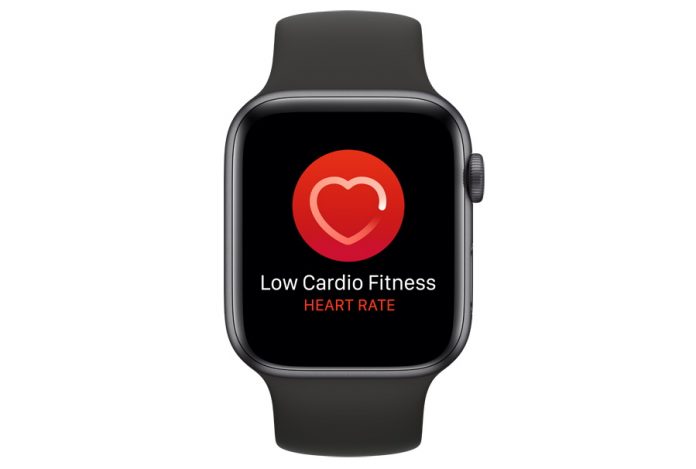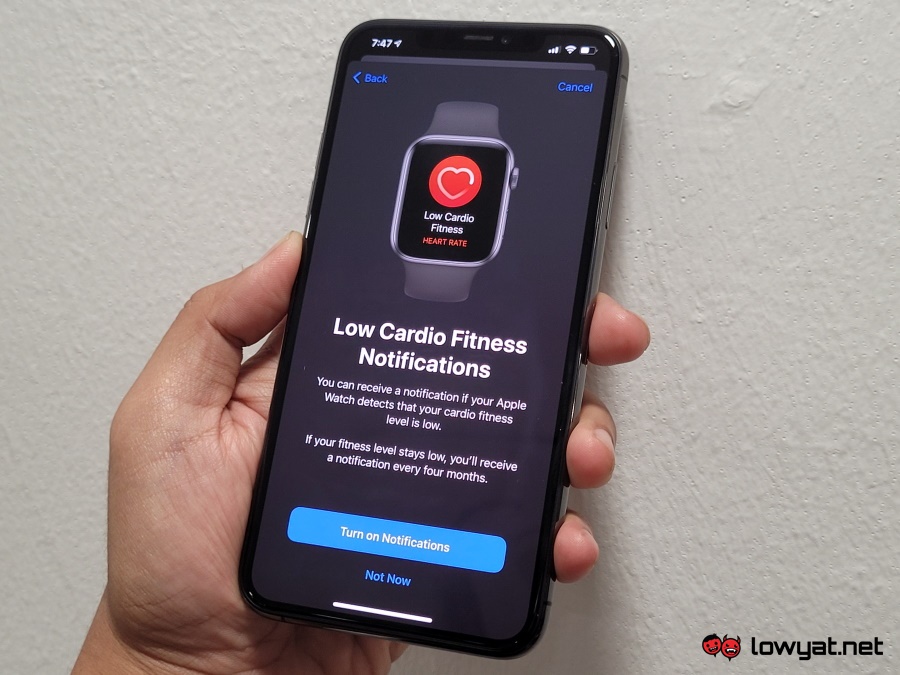There are a variety of metrics that can be used to determine one’s level of general fitness. One of them is VO2 max which refers to the maximum rate of oxygen being consumed during exercise.
Popular among those with an active lifestyle as well as endurance athletes, American Heart Association have previously released a scientific statement back in 2016 that having a low level of VO2 max would increase the risk of other health issues including heart disease, high blood pressure, and obesity.
Meanwhile, predicted VO2 max is something that Apple Watch has already been able to track for the longest time. However, the presentation of the data inside the Health app was rather bland as it doesn’t come with any useful context as compared to many other digital fitness platforms and wearables out there:

However, that changes today with the release of watchOS 7.2 alongside iOS 14.3 for iPhone. First teased during Apple’s 15 September launch event, the update not only renamed the VO2 max section of Apple Health app to Cardio Fitness but has also enabled insights that you can see directly in the app, instead of having to Google around to find out what your VO2 max measurement means.
Among such insights are the actual VO2 max classifications that correspond to the user’s age and gender which are based on the data from US Fitness Registry and Importance of Exercise National Database.

In addition to that, watchOS 7.2 also enables Apple Watch to track and measure one’s predicted VO2 max as they walk throughout the day. Before this, you need to perform an outdoor run or walk for at least 20 minutes to obtain your VO2 max measurement.
Not to forget, users can also now allow Apple Watch to notify them when their VO2 max is low and nudge them again in four months if the level remains low. So, in general, you can take it as a motivator to pursue a healthier lifestyle.
The way I see it, the improvements for cardio fitness tracking and insights that Apple has delivered through watchOS 7.2 is part of the company’s effort to reduce the gap between Apple Watch and other fitness wearables out there. This is similar to how the company has finally implemented native sleep tracking capability via the original watchOS 7 release as well as the inclusion of SpO2 sensor with Apple Watch Series 6.
Clearly, the members of Health and Watch team at Apple are not sitting on their laurels even though Apple Watch has grown to become one of the most popular wearable devices throughout the world.
The post watchOS 7.2 Helps Apple Watch Become A More Competent Cardio Fitness Tracker appeared first on Lowyat.NET.



